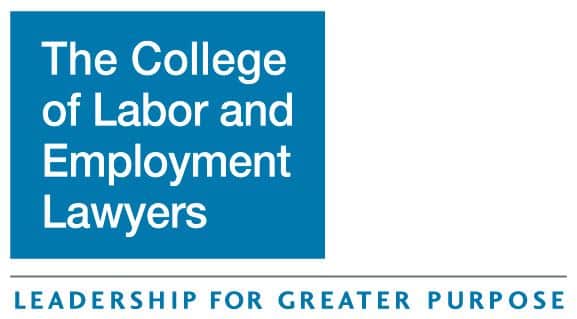Historically, when settling cases involving claims for unpaid wages under the Fair Labor Standards Act (“FLSA”), employment lawyers have typically operated under the assumption that FLSA claims cannot be “privately” settled and that a settlement must be approved by the U.S. Department of Labor or a court before the settlement (and hence, the FLSA release contained in the settlement) is effective. Indeed, there is some case law to suggest that DOL or court approval is required (especially in the 11th Circuit). However, the statutory language of the FLSA itself is silent on the issue of DOL/court approval being a requirement of an effective settlement/release, as that so-called requirement has arisen as a creation of judicial interpretation of the FLSA. In fact, a recent case (in which the U.S. Supreme Court denied appellate review) suggests that parties can privately settle FLSA claims, and that neither DOL nor court approval is required.
In November of 2009, representatives of a union called the International Alliance of Theatrical (IATSE) Stage Employees reached a settlement with various film production companies. Pursuant to that settlement, the production companies paid money to a group of lighting and rigging technicians who claimed they had not been paid for part of their work, in violation of the FLSA. The employees cashed the settlement checks they received, but then also filed a lawsuit seeking compensation for the same alleged FLSA violations. The settlement previously reached by the parties provided that no litigation would be filed concerning these claims. Still, the employees argued that they should not be held to the terms of the settlement agreement because the absence of DOL or court approval of the FLSA settlement rendered the settlement invalid. After all, the FLSA was enacted to prevent employers from using their superior bargaining position to require employees to accept extremely low wages in the form of a “settlement” that is not DOL- or court-approved.
In late 2012, the Fifth Circuit Court of Appeals (which covers Louisiana, Mississippi, and Texas) issued an opinion rejecting the employees’ arguments. The court held that a “private compromise of claims under the FLSA is permissible where there exists a bona fide dispute as to liability.” In other words, a private settlement between an employer and employees will not be recognized where the employer knows how much is owed to those employees, but simply offers those employees less to settle the claim, hoping that the employees will feel pressured to accept the offer. On the other hand, where it is unclear whether (or how much) employees are owed, private settlements will be recognized as binding.
The court explained that an Eleventh Circuit opinion invalidating a private settlement was inapplicable, because, in that case, employers were perhaps unaware of their FLSA rights, as they did not speak English, and as the DOL–not the employees–had initiated an FLSA investigation. By contrast, here, the union employees had legal counsel and were aware of their rights; it was simply unclear how much money–if any–was actually owed them.
The union employees appealed the Fifth Circuit’s ruling to the U.S. Supreme Court. However, the U.S. Supreme Court declined to review the case (denied certiorari), possibly indicating an agreement with the Fifth Circuit on the question of whether private settlement of bona fide FLSA disputes is permissible. Alternatively, the U.S. Supreme Court’s denial of cert could signal the Court’s believe that there is no split of authority among the Circuit Courts of Appeal that needs to be resolved by the Supreme Court. The possible takeaway from this case is that DOL/court approval is not required in most instances, except where the employer tries to “settle” with employees by paying them less than they are owed when there is no bona fide dispute as to liability.
While the Eight Circuit Court of Appeals (which covers Missouri, Arkansas, Iowa, Minnesota, Nebraska, North Dakota, and South Dakota) has not decided the question of whether (and if so when) DOL or court approval is required in FLSA cases, perhaps the Eight Circuit will hold, in the future, that employees who are aware of their legal rights, but whose right to recovery may not be clear, can settle their FLSA disputes privately. This may be even more likely given that the Supreme Court declined review of the IATSE employees’ case.
Ultimately, it seems that a clear line can be drawn between FLSA cases where DOL or court approval may be required and those where such approval may not be required. If an employee (or group of employees) is represented by counsel who negotiates a settlement based on a bona fide dispute as to liability, especially in the context of imminent or pending litigation, then DOL or court approval would seem to be completely unnecessary. However, if an employee (or group of employees) settles an FLSA claim with an employer without being represented by counsel and outside the context of imminent or pending litigation, then it seems that DOL or court approval may be required in that scenario to prevent the employer (who likely has a superior bargaining position) from taking advantage of workers who may not understand their rights in terms of weighing the benefits of the settlement against the FLSA rights that they are being asked to waive.
If you believe your employer has violated your rights to fair pay, or if you want to learn more about your rights, you should contact a St. Louis overtime lawyer.












